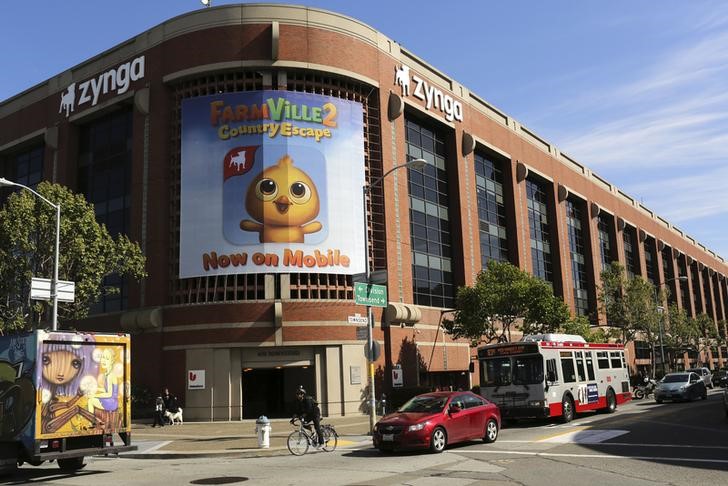(Reuters) - Zynga Inc, the creator of online game FarmVille, forecast current-quarter bookings below analysts' estimates on Wednesday, citing lower advertising sales and weak demand for the company's older games.
The company forecast bookings of $205 million for the third quarter ending September, below the $207.9 million expected by analysts polled by financial and data analytics firm FactSet.
Bookings, an important metric indicating future revenue, include the sales of virtual goods such as currency and lives.
Growth in the current quarter will be weighed down declines in web and older games and continued softness in advertising, the company said.
"We're redoubling our efforts on advertising to get to a place where we can start to come out of the softness and start to grow," Chief Executive Frank Gibeau said in an interview.
The company typically experiences a dip in player activity on its live services in the third quarter.
Zynga is emphasizing more on increasing player engagement in its current roster of games than spending on developing and marketing new ones.
The company recently pulled development of a mobile version of its popular "Mafia Wars" game that it was testing in a soft launch, after concluding that the game did not have the potential to be a successful long-term franchise.
Still, Zynga does have a lot of active development in new games for 2018, Gibeau said.
The company said it signed a nine-year lease with online room renting service Airbnb as an anchor tenant in its San Francisco headquarters, effective first quarter of 2018.
Zynga said it would pursue additional leasing opportunities, but did not provide further details.
The company reported bookings of $209.2 million for the second quarter ended June 30, above analysts' estimate of $206.2 million, according to FactSet.
Average mobile daily active users were 19 million, up 28 percent from a year earlier.
Zynga reported a net income of $5.1 million, or 1 cent per share, in the second quarter, compared with a net loss of $4.5 million, or 1 cent per share, a year earlier.
The company had last posted a net income in the third quarter of 2015, but broke even on a per share basis.
